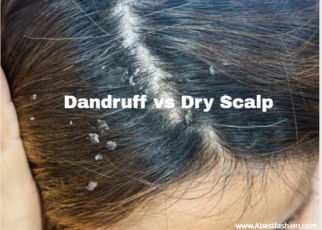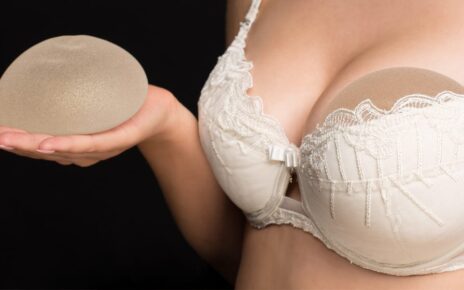Dandruff vs dry scalp – If your scalp is dry and has flakes, you might think it’s dandruff. However, it could be a sign of a dry scalp. Dandruff and dry scalp share similar symptoms, such as falling flakes and an itchy scalp, but they are two different problems.
When you have a dry scalp, your skin becomes irritated and flakes off. On the other hand, dandruff occurs when there is too much oil on your scalp, combined with Malassezia (overgrowth of yeast), which is already present on your skin. This excess oil leads to a buildup of skin cells that eventually shed. Understanding the cause can help find the proper treatment and eliminate those flakes.
Causes For Dry Scalp
A dry scalp occurs when your skin lacks enough moisture. This leads to irritation and flaking of the skin on your scalp. If your scalp is dry, it’s possible that the skin on other areas of your body, like your arms and legs, may also be dry.
Several factors can trigger dry scalp, including:
- Cold and dry air.
- Contact dermatitis happens when you react to products applied to your scalp, like shampoo, styling gel, or hairspray.
- Getting older.
- Using products that remove the natural oils from the scalp
What Causes Dandruff?
The skin cells on your body and scalp naturally increase in number when needed, then eventually die and shed off. This skin cell turnover process happens regularly, but it can occur more rapidly when there is inflammation. In the case of dandruff, the skin cells on your scalp shed faster than usual.
The main reason behind dandruff is seborrheic dermatitis, which makes your skin red, oily and scaly. The scales, which can be white or yellow, flake off, leading to dandruff. Seborrheic dermatitis can affect areas with oil glands, such as the groin, eyebrows, chest, armpits, upper back, ears, and sides of the nose. In babies, this condition is known as cradle cap.
Dandruff is often triggered by a fungus called Malassezia, which naturally resides on your scalp. However, if there is an excessive amount of this fungus, it can accelerate the multiplication of skin cells.
Several factors can contribute to the overgrowth of Malassezia, including:
- Age
- Hormonal changes
- Stress
Having dirty hair does not directly cause dandruff, but if you do not wash your hair frequently enough, the buildup of oil can contribute to the formation of flakes.
Dandruff vs Dry Scalp
You can distinguish between dry scalp vs dandruff flakes by their appearance. Dandruff flakes are larger and have an oily appearance. In babies with cradle caps, their scalp may appear crusty or scaly. Both dry scalp and dandruff can cause itching on the scalp.
When to see a doctor?
You can usually treat dandruff yourself by using an otc shampoo. If you’ve been continuously using a dandruff shampoo for more than 4 weeks and there’s no improvement in your flakes, they’re getting worse, or your scalp appears red or swollen, you must make an appointment with a dermatologist.
A dermatologist is a doctor who specializes in treating skin conditions, and they can assess your scalp and hair. They can determine if you have dandruff or if there may be another skin condition, such as eczema or psoriasis, causing flaky skin on your scalp.
Dandruff vs Dry Scalp Treatment for
If your scalp feels dry, wash it with a gentle shampoo and a moisturizing conditioner afterwards. To determine if you have a dry scalp vs dandruff, apply a lightweight moisturizer to your scalp before bed. If the flakes disappear when you shower the following day, it’s likely a dry scalp. Additionally, some hair stylists offer scalp treatments that use steam to provide extra moisture to your scalp.
Dandruff shampoo
To address mild dandruff, you can wash your hair daily using gentle shampoo to reduce the oil on your scalp. If regular shampoo doesn’t work or in case of severe dandruff, you can try using a dandruff shampoo.
Most dandruff shampoos contain ingredients that eliminate the fungus on your scalp or remove flaky skin. Like
- Pyrithione zinc is an antifungal medication that kills the fungus-causing flaking. It is safe for daily use.
- Selenium sulfide (found in Selsun Blue) reduces the fungus level and prevents excessive shedding of skin cells. Suppose you have blond or grey hair or dye your hair. In that case, it’s advisable to consult a healthcare professional before using a shampoo containing selenium sulfide, as it may affect your hair colour.
- Ketoconazole (found in Nizoral) eliminates the fungus responsible for dandruff. It is available in both over-the-counter and prescription strengths.
- Salicylic acid (found in Neutrogena T/Sal) helps remove excess scales from your scalp before they flake off. However, salicylic acid can dry out your skin and potentially increase flaking.
- Coal tar (found in Neutrogena T/Gel) slows down the shedding of skin cells on your scalp. Tar-based shampoos may also affect the colour of your hair if it is blond or gray.
It’s essential to follow the instructions on the shampoo bottle and consult a healthcare professional if you have any concerns or specific hair conditions.
Tea Tree Oil For Dandruff
Tea tree oil shampoos are considered an alternative remedy to get rid of dandruff. Tea tree oil is a natural ingredient known for its antifungal properties, which some studies suggest can help with dandruff treatment. However, it’s important to note that some people may be allergic to tea tree oil. Before using it, it’s recommended to consult a doctor. If you experience any redness or swelling after using the product, discontinue it.
Regardless of the dandruff shampoo you choose, it’s crucial to read and follow the instructions provided on the bottle carefully. If you’re unsure which shampoo to use or how frequently to use it, seek advice from a doctor or pharmacist. Finding the shampoo that effectively relieves your dandruff may take some trial and error.
Once the dandruff situation gets better, you might be able to reduce the frequency of shampoo usage. However, a doctor can prescribe a stronger shampoo or recommend a topical antifungal or steroid treatment for more persistent dandruff.
Prevention Tips For Dandruff vs Dry Scalp
Here are some helpful tips to keep dandruff vs dry scalp at bay:
- If you have dandruff, you should wash your hair regularly using an antidandruff shampoo. Ensure that you thoroughly rinse out all the shampoo from your hair.
- Do not use hair products containing harsh chemicals like bleach and alcohol, as they can dry out your scalp. Also, steer clear of oily hair products that can lead to buildup on your scalp.
- Spend a few minutes outdoors in the sunlight each day. Some evidence suggests that exposure to ultraviolet (UV) light can help control dandruff. However, it’s essential to be cautious and not overexpose yourself to the sun, as excessive sun exposure can increase the risk of skin cancer.
- Find effective stress management methods, such as meditation, yoga, deep breathing, or other relaxation techniques. Stress management can help improve overall scalp health.
These tips can be beneficial, but consulting a healthcare professional for personalized advice and guidance is always a good idea.
Conclusion
In conclusion, taking care of your scalp and preventing dandruff and dryness is possible with simple steps. You can promote a healthier scalp by using antidandruff shampoos, avoiding harsh chemicals in hair products, getting moderate sun exposure, and managing stress effectively. Listening to your body and consulting a healthcare professional for personalized advice is essential. With proper care and attention, you can maintain a balanced and nourished scalp, reducing the occurrence of dandruff and dryness.
FAQs
How often should I wash my hair to prevent dandruff and dry scalp?
The frequency of hair washing depends on various factors, including your hair type and scalp condition. Generally, washing your hair every 2-3 days with a gentle shampoo can help prevent dandruff and dryness. However, if you have an oily scalp, you may need to wash more frequently. It’s important to find a balance that works for you and to avoid over-washing, as it can strip your scalp of its natural oils and exacerbate dryness.
Can dandruff be completely cured?
While dandruff can be effectively managed and controlled, it may not be cured entirely for everyone. Dandruff is a chronic condition that can recur periodically. However, by adopting good scalp care practices, using appropriate shampoos, and maintaining a healthy lifestyle, you can significantly reduce the frequency and severity of dandruff outbreaks.
Are there any natural remedies for dandruff and dry scalp?
Several natural remedies may help alleviate dandruff and dry scalp symptoms. Some options include applying diluted tea tree oil, coconut oil, or aloe vera gel to the scalp. These moisturizing and anti-inflammatory properties help soothe and nourish the scalp. However, it’s important to note that natural remedies may work differently for each individual, and consulting with a healthcare professional is recommended before trying new treatments.
Discover more from Thenewsdoor
Subscribe to get the latest posts sent to your email.





